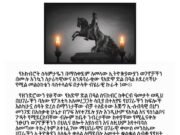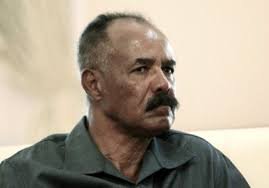ADDIS ABABA (Reuters) – Eritrean President Isaias Afwerki is dispatching a delegation to Addis Ababa for “constructive engagement” with arch-foe Ethiopia after peace overtures this month from its new Prime Minister, Abiy Ahmed, a senior Eritrean diplomat said on Wednesday.
Isais made the announcement – a potentially significant breakthrough in one of Africa’s most protracted conflicts – earlier on Wednesday, Eritrea’s ambassador to Japan, Estifanos Afeworki, said on Twitter. He gave no further details.
Casualty figures are disputed in both countries although most estimates suggest 50,000 Ethiopian soldiers died, against 20,000 on the Eritrean side.
Even after the end of the war, the border remains heavily militarized and disputed, most notably the town of Badme which was part of Eritrea, according to a 2002 international arbitration ruling.
However, Abiy, a 41-year-old former soldier who has embarked on a radical economic and political reform drive since taking over in March, stunned Ethiopians this month when he said Addis would honor all the terms of the settlement between the two countries, suggesting he was prepared to cede Badme.
In parliament this week, Abiy also acknowledged the tensions continued to inflict a heavy economic cost on both countries and said Addis should no longer hide this price tag from the Ethiopian people, another stunning departure with the past.
There has so far been no official response to Abiy’s overtures from Eritrea, one of the Africa’s most closed states.
Reporting by Ed Cropley and Aaron Maasho; Editing by Andrew Heavens

























